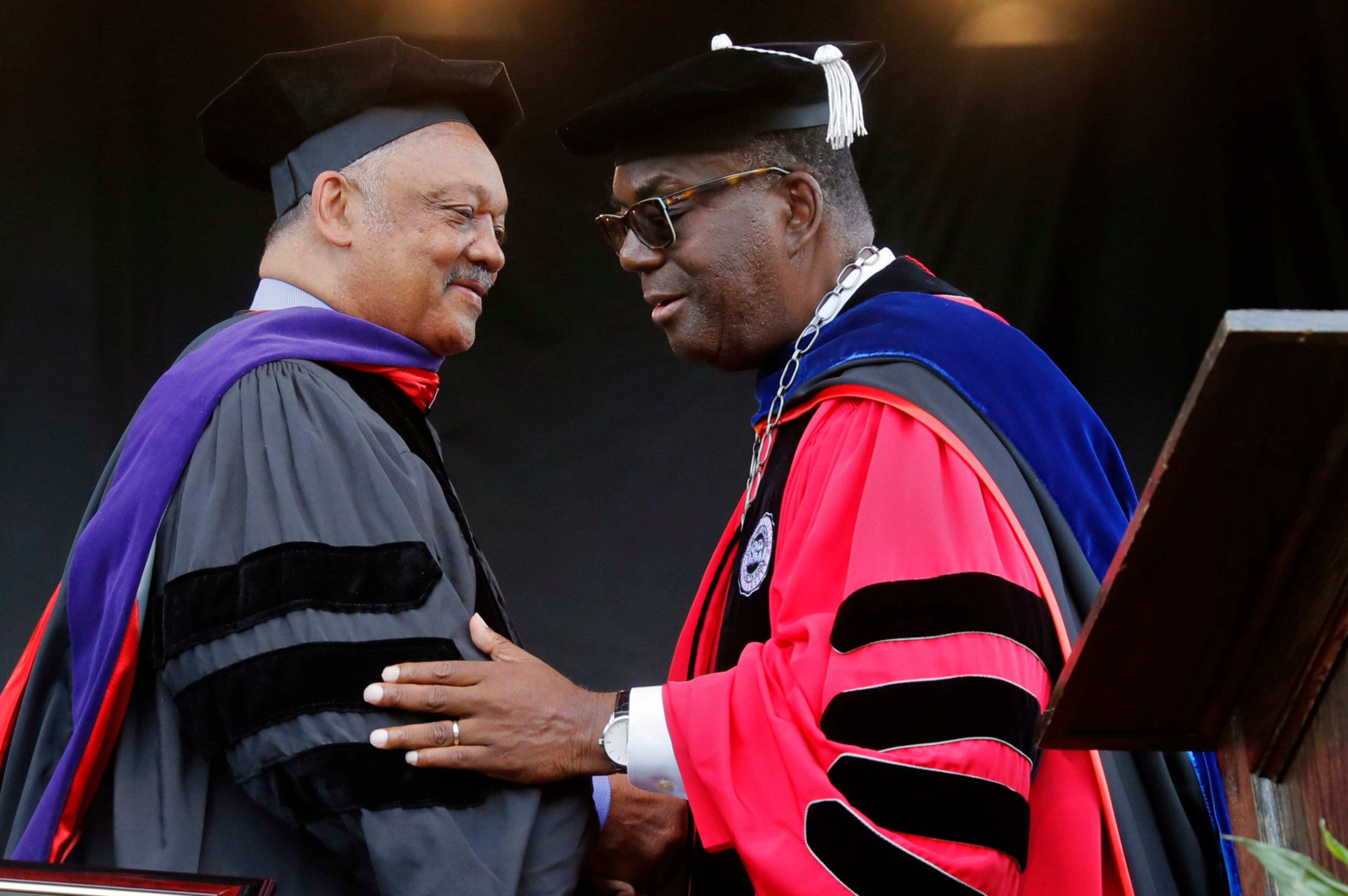Metro schools scramble to find special ed teachers

A recent report to the DeKalb County Board of Education underscored the severity of a nationwide problem metro Atlanta school districts are facing: not enough special education teachers.
Linda Woodard, the district’s interim human resources leader, explained that while the district had 170 special education teaching vacancies, just 40 people had applied for those open spots.
“Every time someone applies as a special education teacher, we’re picking up the phone and we’re calling them,” Woodard told DeKalb’s school board on during its monthly meeting on Monday. “They’re also going to get a special invitation to the (upcoming) job fair.
“Right now, we are loving on the special education candidates.”
Special education teachers are responsible for some of the most vulnerable of learners and must meet certain federal and state requirements. The job often requires much more paperwork to show students are taught according to Individualized Education Programs (IEPs) built to teach students at their respective paces. But burnout happens more often, leading to higher-than-average turnover and teachers shifting to other areas of instruction, or leaving the field altogether.
Schools are already working to fill thousands of vacancies before the new school year begins in a matter of weeks. With special education teachers becoming more and more scarce, many districts are strategizing to find ways to entice the few available prospects, making direct calls to applicants, even offering thousands of dollars in incentives to get them to sign contracts.
Information from the Georgia Department of Education indicates nearly 19,000 special education positions at schools across the state. According to the Georgia Professional Standards Commission, which certifies teachers, about 2,600 new special education certifications are approved annually, but about 1,000 expire each year for various reasons, including teachers changing expertise or leaving the profession. Teacher certifications, which can last up to five years, must be renewed.
Many teachers certified in special education never teach it, often getting the credential along with others because they are strongly encouraged to do so for competitive purposes, said Chuck McConnell, the Georgia Professional Standards Commission’s chief information officer.
“There’s high turnover and a high burnout rate (for special education teachers),” he said. “There’s a large replacement need.”
There also appears to be a gap in understanding why they tend to leave. A 2012 study of special education teachers and superintendents from rural districts showed administrators believed teachers were leaving for different reasons than those the teachers cited. The top answers from administrators were personal reasons at 37%, followed by retirement at 21%. Teachers cited retirement or a desire to scale back responsibilities as their top answer, at 27%, followed at 24% by burnout, stress, job pressure and lack of support.
According to Education Week research data, the student-teacher ratio for special education has risen from about 14 students per teacher in 2006 to 17 students per teacher in 2016, while the number of special education students age 6 to 21 in the United States has declined.
Metro Atlanta teachers said they have left or are considering leaving their classrooms because administrators don’t acknowledge the larger workloads and amount of paperwork, and they often find themselves with students whose behavioral issues disrupt the learning process regularly for the rest of the class.
“The teachers have no support when it comes to these kids,” said Lauren Taylor, whose son receives special education instruction at a DeKalb County school.
Taylor said the situation has gotten so dire at her son’s school that officials often violate IEPs by not affording students their one-on-one training with the classroom teacher.
Woodard said DeKalb’s “aggressive” plan for special ed classes includes also taking a look at class sizes and possibly combining some at the start of the year while recruiting continues. The district is not currently offering incentives to recruit special education teachers, but has been reaching out to recently retired special education teachers for short-term substitute work, as well as asking new hires to recommend other teachers looking for jobs.
“We have put together an aggressive plan,” she said. “At the same time, we want to make sure we’re adhering to the guidelines and giving students what they need and following their IEP objectives. We’re not going to do anything to jeopardize the students and their education.”
Around metro Atlanta, Atlanta Public Schools is offering a $5,000 bonus to help fill about two dozen special education vacancies.
While Fulton County Schools has 39 special education vacancies, about half of those appeared in the last month or so, said Ron Wade, the district’s chief talent officer. Wade said the district pays special education teachers on a salary schedule that supplements their income for working in the hard-to-fill area.
Clayton County Schools officials said the district has 94 special education openings they hope to fill in the coming months.
Gwinnett County Schools has 52 special education teacher vacancies it is still seeking to fill. That number could be much higher, but the district offers an internship program for prospective special education teachers that turned out 19 candidates for the upcoming school year.
“The special education internship is a recruitment/retention strategy to secure qualified special education teachers to support our growing special education populations,” officials said via email.
Cobb County School District officials said the district’s reputation as one of the best school districts in the nation to teach helps it fill vacancies, including the 16 special education vacancies. The Cobb County Board of Education recently approved raises between 8 and 12.6% for district staff.
“While there are currently 16 special education openings, Cobb will not have openings, for any teaching positions, on the first day of school,” said Chief Human Resources Officer John Adams. “The historically unprecedented raise recommended by Superintendent (Chris) Ragsdale has had a big impact on those candidates who had choices between districts. We value what we prioritize and, in Cobb, we prioritize our teachers.”



